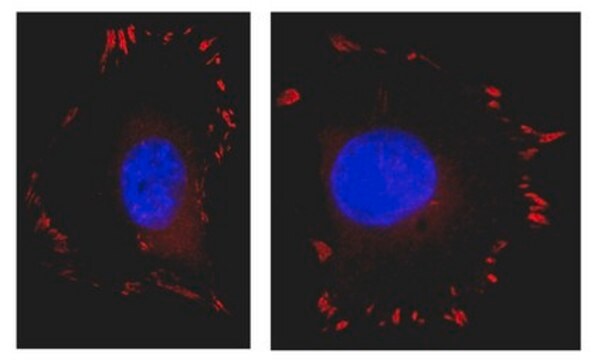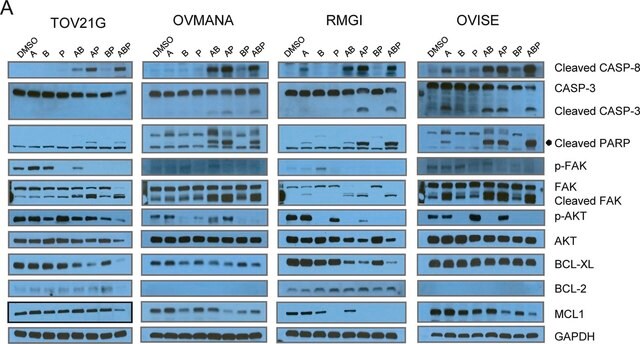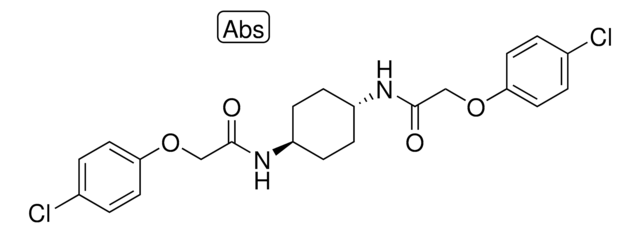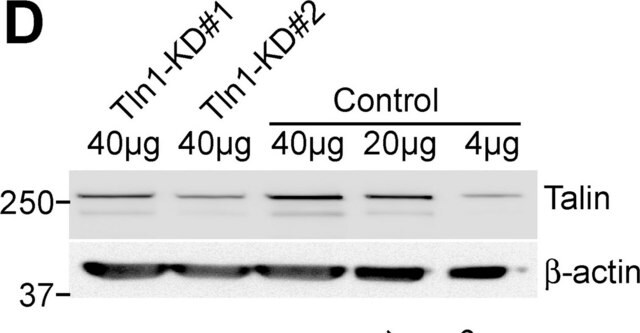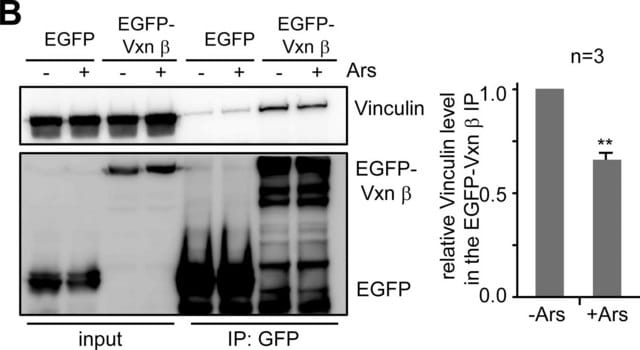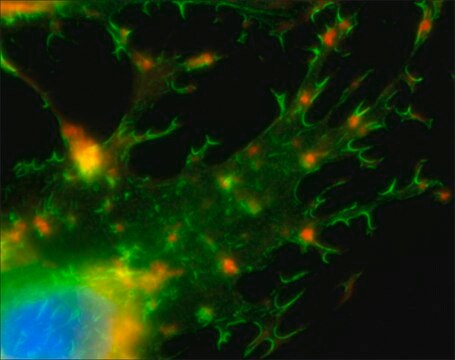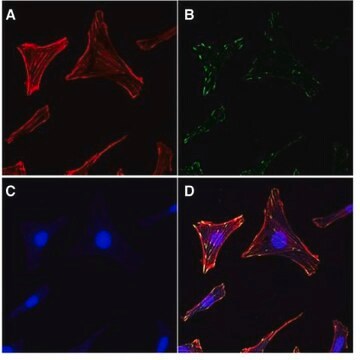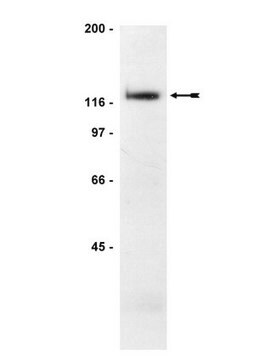16-233
Anti-FAK Antibody, clone 4.47, Alexa Fluor™ 488 conjugate
clone 4.47, Upstate®, from mouse
Synonyme(s) :
Anti-FADK, Anti-FADK 1, Anti-FAK, Anti-FAK1, Anti-FRNK, Anti-PPP1R71, Anti-p125FAK, Anti-pp125FAK
About This Item
Produits recommandés
Source biologique
mouse
Niveau de qualité
Conjugué
ALEXA FLUOR™ 488
Forme d'anticorps
purified immunoglobulin
Type de produit anticorps
primary antibodies
Clone
4.47, monoclonal
Espèces réactives
human, rat, mouse
Fabricant/nom de marque
Upstate®
Technique(s)
flow cytometry: suitable
immunocytochemistry: suitable
western blot: suitable
Isotype
IgG1
Numéro d'accès NCBI
Numéro d'accès UniProt
Conditions d'expédition
wet ice
Modification post-traductionnelle de la cible
unmodified
Informations sur le gène
human ... PTK2(5747)
Spécificité
Immunogène
Application
Signaling
Cytoskeletal Signaling
Qualité
Description de la cible
Forme physique
Stockage et stabilité
Informations légales
Clause de non-responsabilité
Unless otherwise stated in our catalog or other company documentation accompanying the product(s), our products are intended for research use only and are not to be used for any other purpose, which includes but is not limited to, unauthorized commercial uses, in vitro diagnostic uses, ex vivo or in vivo therapeutic uses or any type of consumption or application to humans or animals.
Vous ne trouvez pas le bon produit ?
Essayez notre Outil de sélection de produits.
Code de la classe de stockage
12 - Non Combustible Liquids
Classe de danger pour l'eau (WGK)
WGK 2
Point d'éclair (°F)
Not applicable
Point d'éclair (°C)
Not applicable
Certificats d'analyse (COA)
Recherchez un Certificats d'analyse (COA) en saisissant le numéro de lot du produit. Les numéros de lot figurent sur l'étiquette du produit après les mots "Lot" ou "Batch".
Déjà en possession de ce produit ?
Retrouvez la documentation relative aux produits que vous avez récemment achetés dans la Bibliothèque de documents.
Notre équipe de scientifiques dispose d'une expérience dans tous les secteurs de la recherche, notamment en sciences de la vie, science des matériaux, synthèse chimique, chromatographie, analyse et dans de nombreux autres domaines..
Contacter notre Service technique